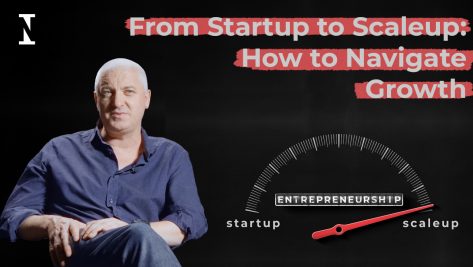So, you want to be an entrepreneur? You could spend the next five to 10 years on an unproven business model, struggle to get a working product, suffer through multiple fundraising rounds, eke out first revenue, hope nothing breaks as you try to scale, and then pray for a good economy when it comes time to sell or IPO. All this with a very high probability you will shut the company down or are fired by your board along the way.
An alternative is to raise a search fund. Spend a month writing a private placement memorandum, another six months pitching yourself to a well-defined group of search fund investors. Raise a few hundred thousand dollars to fund your salary and expenses for the next two years as you sort through hundreds of small, probably family-owned businesses to find a great, growing, profitable company to buy, build, and (probably) sell. That same group of investors will provide the equity capital to purchase the company along with some bank debt, as well as coach you on the characteristics of the best company to buy. The first year is all about getting to know the company’s operations inside and out and then another four to six years building the company by growing revenue and profit, maybe doing a few tuck-in acquisitions along the way. Then, seven or eight years after you started, you will probably sell the company to a strategic buyer or private equity firm and make a bunch of money for you and your investors.
And once you find the company to buy, there’s a 75% chance all of that will happen, and that as CEO (or co-CEO) you will become the largest shareholder(s) in the company.
For many, the latter alternative is not only a better fit, but much more likely to yield a positive result, both professionally and financially. This particularly applies to the MBA crowd, and especially the non-technical MBAs. The reasons are simple:
- Well-tested road map to success: The process of raising search funds to purchase, operate and eventually sell a company has been honed over the last 25 years. So, unlike starting a company from scratch, there is a well-understood process to raise funds and perform the search, and a lot of data on what kinds of companies are ‘bulletproof’ for new CEOs. This increases the probability of success in both finding a company and growing it to a successful exit.
- Higher expected value for entrepreneurs and investors: Because searchers are purchasing profitable, growing companies, once you buy a company, the probability of earning three to seven times invested capital (or more) is relatively high. As a result, the ‘expected value’ for both searchers and their investors is significantly higher than in venture-backed technology startups. True, there aren’t many 1000x outcomes in search (although they do exist), but the mean of the return distribution curve is farther right and the right tail is much fatter in search returns than in their venture-backed counterparts.
- Low cyclicality: Unlike venture-backed startups that are held hostage to the cyclicality of the funding and public equity markets, search entrepreneurs consistently purchase established, growing, and profitable companies at five to eight times cash flow (or EBITDA), year in and year out, despite what’s happening in the broader market environments. Similarly, regardless of the stock market, there are always middle-market private equity companies and strategic acquirers willing and able to provide attractive exits to companies that the searchers have grown to some level of scale.
- Growing opportunities internationally: While the number of technology startups outside of Silicon Valley and the US are more common today than they have ever been, over 50% of venture-backed companies still originate or end up in the States. There are attractive, family-run companies in every country in the world, and the search fund model has now been successfully deployed in more than 34 countries.
The search fund community is known to be nurturing and supportive to its entrepreneurs.
- Investors expect that some searchers will not find a company to purchase: There are hundreds of investors who focus on this asset class and are looking to join a syndicate of 10-15 investors each investing $30,000 – $40,000 as an ‘option’ to write a bigger equity check in a great company that a searcher finds. However, despite working very hard for two or three years, 25% – 30% of searchers won’t find a company to buy before their funds run out and the investors’ ‘options’ will expire. In fact, investors expect that, and the searcher will have gained invaluable experience, spending two years interacting with hundreds of potential sellers. The skills acquired during that period are very useful to the searcher throughout their career. Once the searcher purchases a simple, profitable, growing company, the odds of them running it into the ground are very small.
- It’s more fun: Most venture-backed CEOs exist on the brink of failure – they are usually generating large operating losses because they are trying to scale rapidly which creates a hamster wheel of fundraising to feed the beast. CEOs of companies with a history of growth and profits can adjust the rate at which they reinvest in the company to generate additional growth (either organically or through acquisition), which gives them more optionality. In addition, the search fund community is known to be nurturing and supportive to its entrepreneurs, an attribute not always characteristic of the venture capital community.
Given all this, though, raising a search fund is not for everyone and as with all major life/career decisions, there are several factors to consider prior to embarking on the search fund path.
- It’s HARD! Whether you’re going it alone or with a partner, entrepreneurship through acquisition (ETA) is difficult. If you’re qualified, raising the search fund itself may be the easiest step in the process. In the two years of searching for a company to buy, there will be a lot of ups and downs – unresponsive sellers, signed letters of intent that blow up, due diligence that uncovers financial or operating issues. At each of the junctures, the searcher starts over. Once you identify a great company with a real seller, there are difficult negotiations with the owner, the banks, and sometimes with your investors. Then comes the hard work of running the company – and that includes firing long-term employees who do not fit with the new strategy, unexpected operating issues, and a host of other roadblocks.
- It’s a multi-year commitment. From the time you decide to take the search fund path until you sell the company and the check clears the bank, it could be eight to 10 years: six months to a year to raise the search fund and set up the search entity, two years of searching for a company to purchase and negotiating the deal, five to seven (or more) of operating the company and another year or two to sell it. The process is an Ironman and not a 50-yard dash.
- It requires sacrifices. The company you purchase may (or likely will) be in a location other than where you prefer to live. If you have a significant other or family, you will all need to move there for a while and this means new housing, new schools, and new friends. Searching for and then operating a company requires long hours, often seven days a week, particularly at the outset. You may miss kids’ birthdays, class reunions, and nights out with your spouse or friends.
If you have the right constitution to take on these challenges, the rewards of entrepreneurship through acquisition are many and significant.
- Skills acquisition. As a searcher, you will learn how to evaluate businesses from the outside and quickly assess which ones are great and which ones are not worth pursuing. You will learn how to sell – to investors, sellers, banks, customers, employees, and acquirers. You will learn how to negotiate complex contracts. You will learn how to operate and grow a business and all of the functional skills that entails – sales and marketing, finance, new product development, HR, and legal. And in most cases, you will acquire all these skills before turning 35.
- Career acceleration. All the skills you acquire will accelerate your career, no matter what you decide to do after your search experience is over. Even if you raise a search fund and end up not finding a great company to buy (which happens in 25% – 30% of the cases), you will get five years of experience in that two-year search which you can apply to whatever you decide to do next. And of course, if you find a company to buy and run, you will be a proven CEO and can then choose to go on to run larger, more complex organizations.
- Satisfaction of success. Talk to any searcher and they will tell you that the most rewarding aspect of the process is building and leading a great team. And, there is no higher reward in business than executing a plan that beats the competition.
- Financial independence. Making money is not the primary reason to take the search path. However, the potential financial benefit from a successful search/operate/sell strategy can easily reward the searcher with $5 – $25 million in equity value (which is taxed at capital gains rates). And the probability of this outcome is quite high if you follow the playbook (for more on this check out the Search Fund Primer from Stanford Graduate School of Business) and surround yourself with great investors, partners, service providers, and employees.
For many, search becomes a career. These are searchers who decide to reinvest their gains after they have sold their company, by becoming search fund investors themselves and using their resources and experience to help other searchers replicate their success. There are several ways to accomplish this:
- Become a serial ETA CEO, getting multiple windfalls throughout your career.
- Become a serial search fund investor.
- Start a PE fund
- Own 100% of your business the second time around
- Teach ETA at a leading global MBA program
- Take a completely different career path (like the arts, philanthropy, or impact investing) after a windfall early in your career/life.
I am fortunate in having done most of the above.
© IE Insights.











